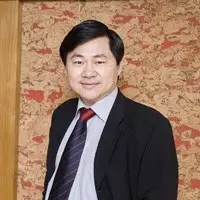Wang Huiyao: Hong Kong’s youth, talent & innovation across the Greater Bay Area
August 16 , 2019
By Wang Huiyao |
President of the Center for China and Globalization(CCG)
In seeking to understand and address Hong Kong’s turmoil, we should not overlook its economic roots. For some of the city’s young people, anxieties about house prices and social mobility, for example, have fed into a sense of uncertainty about the future. Thankfully, development of the Greater Bay Area offers great opportunities.
Hong Kong has prospered as a gateway to China. However, it continues to rely on the same pillar sectors it has for decades. The bay area scheme offers a golden opportunity for Hong Kong to reposition itself and diversify, acting as a catalyst for innovation and entrepreneurship.
Once known as the “world’s factory”, the bay area is shifting towards innovation-driven development. Fuelled by the circulation of finance, ideas and expertise, it shares attributes with leading urban clusters such as the Tokyo Bay Area, New York metropolitan area, and the San Francisco Bay Area. In gross domestic product terms, the Greater Bay Area may surpass all of these as early as 2022, having reached US$1.6 trillion last year.
As a bridge between China and the outside world, Hong Kong has a unique role to play in the bay area. Previously, the city served as a regional conduit for goods and capital. With its strengths in financial services, scientific research and management, Hong Kong is ideally placed to be the bay area’s hub for talent. The bay area also offers the ready-made market and linkages to nurture thriving Hong Kong entrepreneurs and start-ups.
To realise this potential, steps are needed to facilitate the flow of talent and ideas between Hong Kong and the rest of the area. This will allow Hong Kong’s youth to benefit from a “greater bay dividend” as the area develops, pursing career opportunities and even raising families in Pearl River Delta cities such as Shenzhen, Zhuhai or Dongguan.
Innovation and talent should be at the forefront of planning. Policies should be coordinated across Guangdong, Hong Kong and Macau to facilitate talent integration, resource sharing, and collaboration in research and entrepreneurship. An effective cross-border working mechanism would help achieve this.
Infrastructure investments have brought us closer to the vision of a “one-hour living circle” connecting Hong Kong with neighbouring cities in Guangdong. Convenient transport will encourage exchange between entrepreneurs, academics and young graduates, fuelling greater collaboration and new businesses.
However, there are still administrative obstacles that deter the flow of talent in the bay area, which spans three tax zones and different currencies and legal systems. More efforts are needed to overcome these “soft” barriers.
For example, paperless schemes could go on trial to allow select individuals to travel freely between Hong Kong and its 10 neighbouring cities. Technological solutions such as facial recognition could help streamline movement across borders.
Tax issues deter individuals from crossing the border to work. Hong Kong citizens spending more than 183 days a year on the mainland must pay Chinese personal income tax. Closer cross-border tax cooperation could alleviate some of these complications. For example, a mutual tax exemption could be introduced for researchers and academics as a step towards closer alignment of tax regimes and incentives.
A more seamless connection of public services would also encourage cross-border talent flow, such as ensuring equal treatment for Hong Kong citizens in Guangdong on social insurance, health care and education. Trials could be launched to make it easier for Hongkongers to manage social insurance and use integrated insurance mechanisms to access medical services across the bay area.
Mutual recognition of professional qualifications would help the circulation of talent in finance, law and accountancy. Qualifications used by Hong Kong industry associations are aligned with high international standards and provide a useful reference. Hongkongers currently face some limitations, such as where they can sit for Chinese professional qualifications, and these discrepancies should be smoothed out.
Finally, Hong Kong and its people can benefit by leveraging their rich educational resources. The city is well placed to train research and managerial talent for the bay area and be a hub for executive education and cross-border research and development.
Hong Kong’s world-class universities could forge closer links with Shenzhen’s innovation ecosystem, like the role that Stanford University plays in Silicon Valley. A university-industry research and development alliance could be created to better harness fragmented resources for innovation.
This could include enterprises, research institutions, and professional associations. Project costs could be shared between the government and participating entities, with the resulting fruits of innovation shared for the social good.
As a vibrant and globally fluent city, Hong Kong has played a special role in China’s development. To ensure continued prosperity, Hong Kong’s role must evolve with the times so its people can recognise and seize the opportunities of deeper integration with the mainland.
The flow of talent is key to this future. More than just a gateway to China, Hong Kong should strive to be a hub for talent and innovation at the heart of the Greater Bay Area. Not only will this support the development of a world-leading innovation cluster, it will also offer brighter options for Hong Kong’s greatest asset of all, its young people.

Dr. Wang Huiyao is president of the Center for China and Globalization, the largest independent think tank in China, with over 100 researchers and members of staff.
Topical News See more






